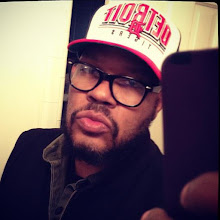
While the American dance scene has in many ways cooled from the peaks of the late Nineties, it's also adapted to fit into the fast-forward culture of today. With mix CD and especially 12-inch sales virtually nonexistent, dance fans have instead emphasized the experience. Just ask anyone stuck at the back of a blocks-long line to get into a club featuring Paul van Dyk or Armin Van Buuren on the decks. Miami's eight-year-old Ultra Music Festival — which adds a second day this year — simply represents the DJ side of America's current festival fascination, a phenomenon in which fans have followed Europe's lead and now travel many miles and spend many dollars just to say that they were there. Coachella, Bonnaroo, Lollapalooza, and Ultra all benefit from this eagerness to turn the music experience into a sonic vacation.
"Back when we started in 1999, I was promoting big dance music events around town," says Ultra founder and executive producer Russell Faibisch. "I'd met up with my current partner, Alex Omes, who owned DVOX magazine, a nightlife/dance music publication. We became best friends and started doing events together. Through our passion for the music, we decided to do something really massive in Miami, which was the first Ultra, a beach party that drew 7000 people. Year after year, it's just blossomed out of control. From that first year, we grew to 15,000 the next year, then 23,000, to this year where we're expanding to two days and expect upwards of 50,000 people."
"It's the only festival like it in the States. There's nothing you can really compare it to," says Tom Holkenborg. Better known as the adventurous Dutch DJ/producer Junkie XL, Holkenborg has played Ultra several times and witnessed the event's evolution into a smooth-running production. With an obvious sense of humor, he notes that it wasn't always that way.
"I was playing the main stage at 8:00 p.m., prime time. It was maybe the festival's second year," he remembers. "I went on and everything was happening and the crowd was really into it. It was great. Then about ten minutes in, a certain bodyguard, for some unknown reason, decided that my set was over. There was a huge commotion, and he threw me with my equipment offstage. The crowd didn't know what was going on. The police were called, and in all of the hysteria the guard that threw me off ended up getting beaten up by a bunch of the other security guards.
"It was a huge, crazy scene," he marvels. "Let's just say that things at Ultra now are much more organized than that."
Now that it has found sure footing, Ultra has widened its scope to include more acts outside of the dance music mainstream, from last year's headliners the Killers, to this year's inclusion of such bands as Shiny Toy Guns, and the jaw-dropping and inspired booking of alt-rock legends the Cure to close out the opening night.
"Well, we were asked and we said yes," chuckles Cure frontman, Robert Smith (pictured), of the origins for this curious choice. "We're excited to play Ultra. It's a one-off, and we're treating it as a special show. We're going to do a special set for it, playing songs we wouldn't normally play. It's a challenge, and I think it'll be an enjoyable experience for everyone."
As Smith further explains, it's actually not that much of a stretch for the band to headline. "The connection between the Cure and dance music is and always has been a good one," he says. "Going back to the early Eighties, we've always had twelve-inch remixes and got lots of play in the hip and happening clubs. Then Paul Oakenfold remixed our single 'Lullaby' in 1989, which was hugely popular in Ibiza that summer. That's when we first really became aware of the DJ/dance movement as a thing. The following year we put out an album called Mixed Up, which was a collection of various Cure remixes. I was just really drawn into it, and have retained that feeling ever since.
"Not being able to dance has always hampered my true enjoyment of it though," he adds, laughing.
But dance fans needn't worry that Ultra is moving away from its DJ-driven core. "We'll never do anything to change our focus," promises promoter Faibisch. "The Cure are legendary, and we're honored to have them on the bill. But for Ultra it's about the DJs, which is why we've been fortunate to have Paul van Dyk — the DJ's DJ — close the festival every year since the beginning. It's a tradition we hope to maintain for as long as the festival is in effect."
At this point, all visible signs point to Ultra's longevity, with additional future events planned for Los Angeles and New York. And it appears as though it might even help to spur on other festivals in this country.
"I do know there are going to be a couple of new ones springing up here in America that are using Ultra as a model, so you can say it's become very influential as well," notes Junkie XL. "It's much closer to European fests like Homelands, Dance Valley, and all of the rest. Given that dance music is a much more underground scene in America, the fact that Ultra exists and is successful is really important and special. It just gets better each year. The crowds continue to grow, and the lineups have evolved to reflect the way music changes."
Ultra Music Festival takes place on Friday, March 23, from 4:00 p.m. to midnight and Saturday, March 24, from noon to midnight at Bicentennial Park, 1075 Biscayne Blvd, Miami. Tickets for Friday cost $59.95, tickets for Saturday cost $74.95, and two-day passes cost $119.90. Visit www.ultramusicfestival.com.
(Originally published in the Miami New Times, 3/07)

0 comments:
Post a Comment